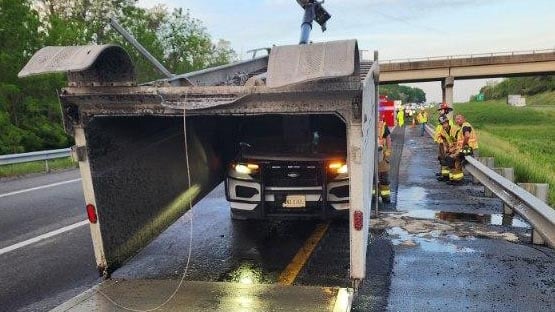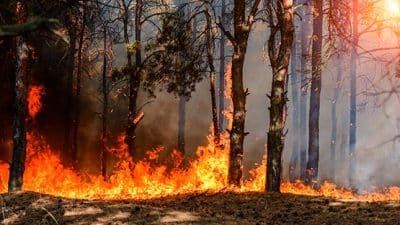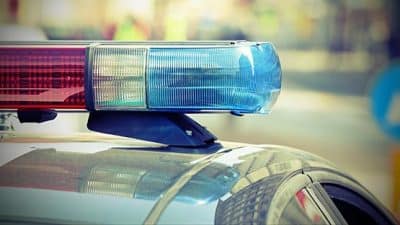
The General Assembly has passed legislation that will make Virginia among the first states to adopt a comprehensive program to identify wildlife corridors, protect motorists from collisions with animals and address barriers to wildlife movement.
“Protecting pathways for both people and wildlife is paramount to a safe and healthy future for the Commonwealth of Virginia,” said Del. Ken Plum, chairman of the Agriculture, Chesapeake and Natural Resources Committee. “This new legislation reinforces Virginia position as a leader in caring for and preserving its natural landscapes and resources.”
The legislation, introduced by Del. David Bulova and Sen. David W. Marsden, requires collaboration between state agencies such as the Virginia Department of Transportation and the Department of Game and Inland Fisheries to create a Wildlife Corridors Action Plan, which will identify wildlife corridors and existing or planned threats to wildlife movement while also recommending priority areas for wildlife corridor projects and human safety.
Marsden, sponsor of SB 1004, said: “This is the coolest bill ever. Where else can you protect wildlife habitat, reduce property damage from collisions with wildlife, save lives that are sometimes lost in these collisions, keep animals out of your backyard and your flower garden, and provide an opportunity for private groups to fund animal passage over interstates, secondaries, and any roadway that can make wildlife transit safer for all? I love this bill.”
This legislation comes at an important time, as wildlife vehicle collisions are a costly and dangerous impediment to Virginia’s motorists. According to the Virginia Transportation Research Council, as many as 61,000 deer-related crashes have been reported within Virginia in a year, averaging more $533 million in damages annually.
Virginia consistently ranks in the top ten states in the U.S. for deer-related car crashes, which have led to 10,000 serious injuries and 200 fatalities. Additionally, the toll on wildlife is staggering: Motor vehicle strikes are considered a serious threat to survival for more than 20 federally-listed threatened and endangered species across the country.
“Wildlife-vehicle collisions are costly and dangerous for Virginians,” said Bulova, sponsor of HB 1695. “With this legislation we can make the Commonwealth’s roads safer while ensuring that wildlife can move and adapt to a changing world, preserving our wildlife and landscapes for future generations.”
“Wildlands Network thanks Senator Marsden, Delegates Bulova, Plum and Keam for their leadership in safeguarding Virginia’s wildlife and motorists,” said Susan Holmes, policy director at Wildlands Network. “We also thank our many coalition partners for their steadfast support. Confronting a rapidly changing climate and pressure from human development, wildlife needs the freedom to move across the landscape. This legislation builds on the state’s conservation work to protect wildlife habitat and Virginia Department of Transportation’s highly successful wildlife crossing projects. It is a no brainer and a win for all Virginians.”
“Wild Virginia is grateful that Virginia legislators saw a problem worked together to take action,” said Misty Boos, executive director of Wild Virginia. “This bill is an excellent step toward preventing unnecessary deaths for both people and wildlife on our roadways”.
The importance of protecting wildlife corridors to sustain populations of native species is well-grounded in a growing body of scientific research, and efforts to protect these corridors have become a priority for federal and state agencies alike.
In 2019, Oregon, New Hampshire and New Mexico passed wildlife corridor protection bills. This year, seven states—including Virginia—have introduced legislation to protect wildlife corridors. Installing fencing along 1-64 in Albemarle County, Virginia has led to a 500% increase in wildlife using the underpasses and a 95% reduction in deer collisions.
At the federal level, bipartisan legislation led by Congressman Don Beyer (D-VA) recently passed the House Natural Resources Committee and in the Senate, America’s Transportation and Infrastructure Bill contains $250 million for wildlife crossings.
“The wide-ranging impacts of climate change will continue to have growing influence upon not only Virginia’s human communities, but also upon Virginia’s wildlife—both game and non-game species,” said Pat Calvert, policy and campaigns manager for Virginia Conservation Network. “The connectedness of these critical wildlife habitats will become increasingly vital for wildlife sustenance. The Wildlife Corridors Act will offer a heightened degree of resilience to safeguard the future of our native fauna while simultaneously ensuring safer roads and highways for Virginia families.”










